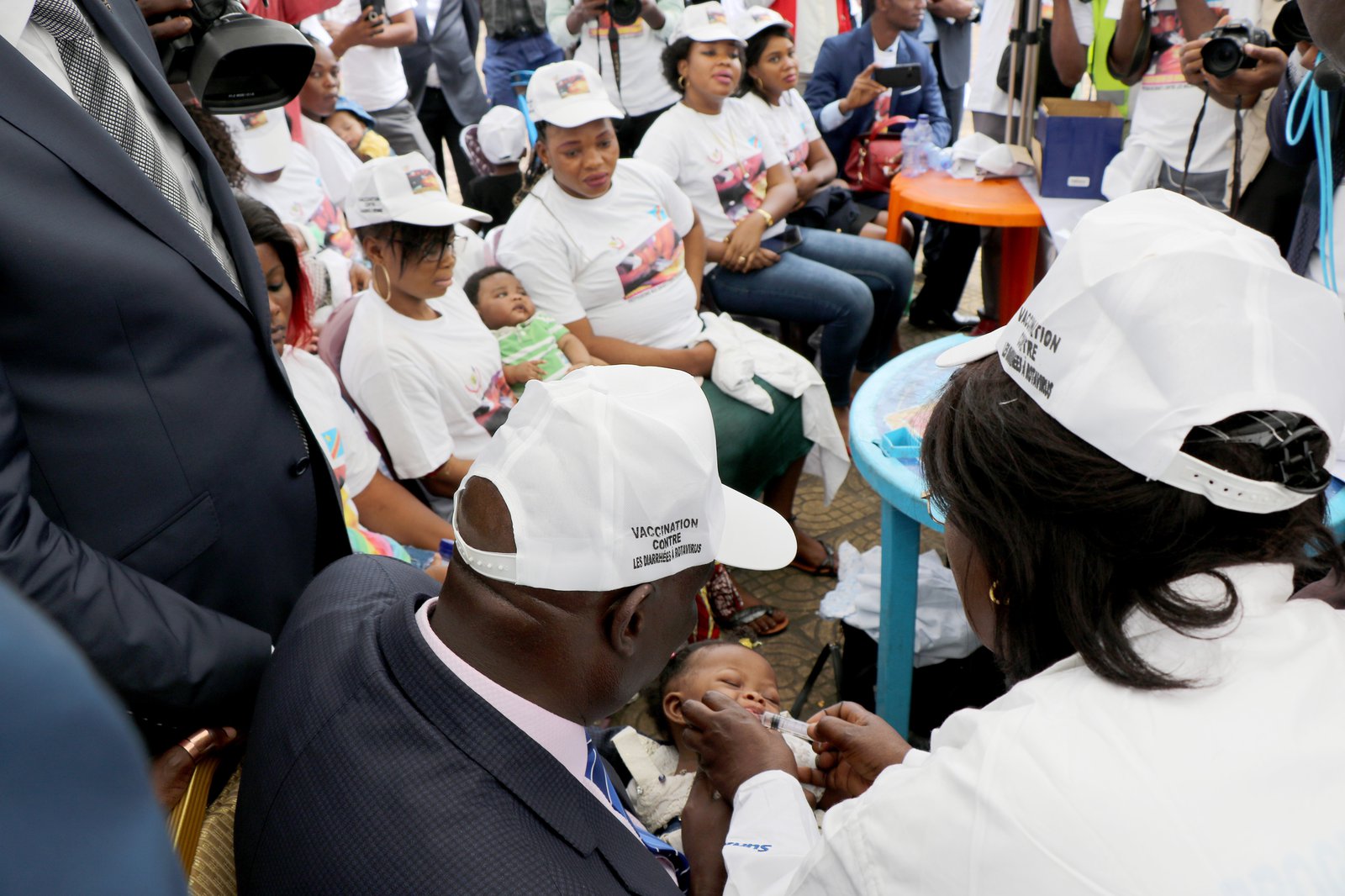On October 30, 2019, the Democratic Republic of the Congo (DRC) took a bold step forward for child health by introducing rotavirus vaccine in its national immunization program. With the DRC having one of the world’s highest rotavirus mortality rates—an estimated 103 deaths per 100,000 children under five years of age—and accounting for 7% of the global toll of rotavirus deaths with over 13,600 child deaths in 2017 alone, this step was both urgently needed and long awaited.
Targeting all children under 9 months of age, DRC’s rotavirus vaccination program will begin in Kinshasa and four other provinces—Kwilu, Kwango, Mai Ndombe, and Equateur—and gradually expand nationwide. The program will be supported by Gavi, the Vaccine Alliance, with co-financing from the government of DRC, which was made possible thanks to the renewed commitment of President Tshisekedi Tshilombo to improving child health and immunization during the National Forum on Immunization and Polio Eradication in July 2019.
DRC’s introduction of rotavirus vaccine is also remarkable for another reason: it is the first Gavi-supported introduction of ROTASIIL®, a newly available heat-stable rotavirus vaccine from India, in an African country.

Led by the DRC Ministry of Health, the rotavirus vaccine launch ceremony in Kinshasa gathered families, government stakeholders, and international partners to celebrate immunization. World Health Organization/Eugene Kabambi
A needed vaccine for a vicious virus
Rotavirus is the leading cause of severe, dehydrating diarrhea among children under five. This is true both worldwide and in the DRC, where an estimated 67% of child diarrhea hospitalizations are due to rotavirus. The heavy burden of this virus is felt by families not only when they lose little ones to its rapid dehydration, but also when parents miss work and lose income in order to nurse their children back to health. Health care workers, hospitals, and government systems also get overwhelmed by the costs and logistics of treating so many children.
Vaccines against rotavirus have been available and supported by Gavi for more than a decade. The World Health Organization (WHO) recommends national rotavirus vaccination programs for every country as the best way to protect children from rotavirus, which is resistant to improvements in water, sanitation, and hygiene that have reduced the incidence of other causes of diarrhea.
Prior to 2018, two rotavirus vaccines were globally available and WHO-prequalified. Both are safe, effective, and are saving lives in countries where they have been introduced, but they come with a high price tag. Gavi’s support offsets this cost for eligible countries, but the price is often not sustainable for countries as they transition away from international support. In order to reduce costs for countries, improve supply, and support a diverse market, PATH has helped support the development of several new lower-cost rotavirus vaccines. Two of these new vaccines achieved WHO prequalification in 2018: ROTAVAC®, manufactured by Bharat Biotech, and ROTASIIL®, manufactured by the Serum Institute of India.
Because the DRC is the first Gavi-supported country in Africa to introduce ROTASIIL®, the introduction is paving the way for the potential of this new vaccine elsewhere in Africa and around the world.
Protection for 3.2 million children
The DRC is home to approximately 3.2 million children who, thanks to the courage, tenacity, and dedication of decision-makers, health workers, advocates, and global partners, will now have access to protection against rotavirus. And thanks to the contributions of scientists, innovators, and global partners who helped develop ROTASIIL®, this protection will be more affordable and sustainable for generations to come.



